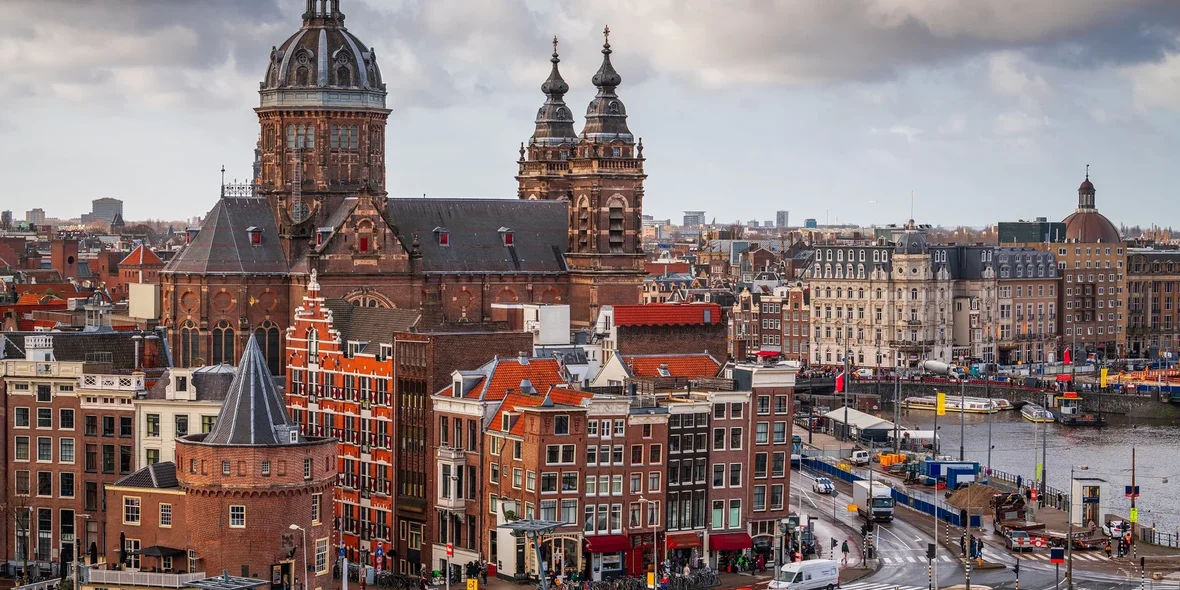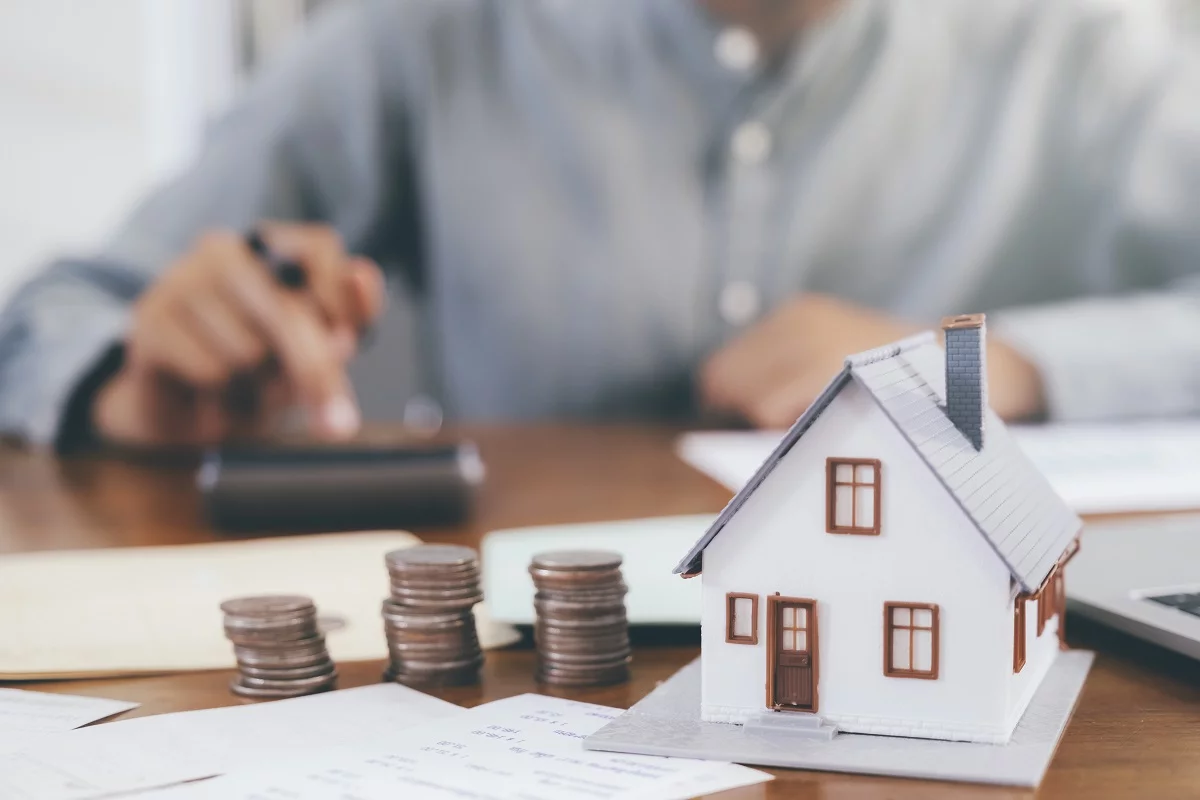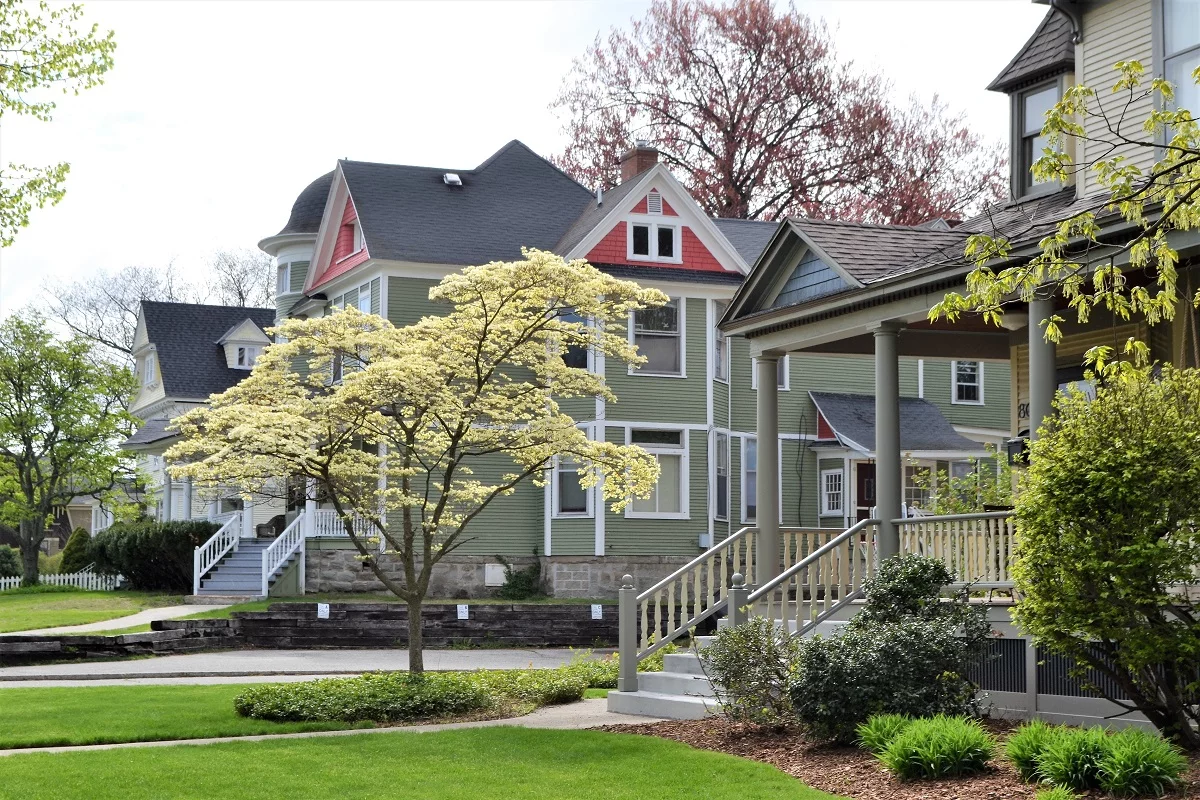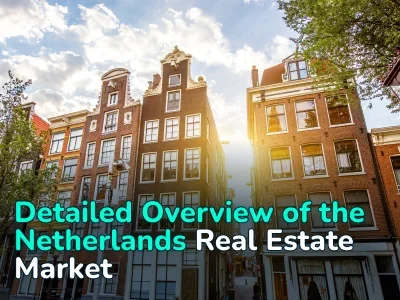
Mortgages for Foreigners in Latvia, Lithuania, the UK and the Netherlands — All Important Information
The mortgage market is unpredictable, especially lately: home prices are rising, so are inflation and interest rates. But perhaps now is the best time to enter the “field” of housing — who knows what’s coming in the next few years. We’ve already written about mortgages in Poland, Germany and Spain, and today we’ll find out how to get a home loan in the UK, Lithuania, Latvia, and the Netherlands.
How to Get a Mortgage in the United Kingdom
Foreigners can get a mortgage in the U. K., but it will be slightly more difficult than for residents of this country — lenders will check you and your capabilities much more thoroughly.
There are two main types of mortgages in the U. K. — fixed-rate loans and variable-rate loans.
About 75% of mortgages in the U. K. are originated as fixed-rate loans. They are usually for two years or five years, and then the interest rate changes to a standard variable rate. The term is usually about 25 years, but another period can be agreed upon (for example, 15 or 35 years).
Variable-rate mortgages can fluctuate and are dependent on the Bank of England base interest rate, which has fallen to 4.5% by February 2025. This makes them less risky than they were during the high rate period of 2023, and they can become profitable when rates fall further.
There are more than 100 lenders in the U. K., and they are all different. To find the right lender, you can, for example, contact an independent mortgage broker or financial advisor.
It usually takes about 18–40 days to process a mortgage application in the UK. In particularly complex cases, it can take longer.
Basic Requirements for Obtaining a Mortgage
If you are a foreigner and want to get a mortgage in the UK, there are two ways you can do it — the first is easier, the second is a little more complicated.
First option — get a mortgage if you have a permanent or indefinite residence permit.
Lenders will pay attention to the following points:
- Time of residence in the UK. It is desirable that it should be at least 2 years.
- Work. Lenders are usually happy to give mortgages to people who work permanently in the UK. Of the documents you will need to provide pay slips for the last three months, form P60 from your employer (if employed), if not employed — tax returns (for the past and previous years).
- Bank account. It is important to open a bank account in the UK as soon as you arrive.
- Deposit. If you pay a decent amount as a deposit (within 25% of the value of the property you are buying, and in some cases 20% is enough), lenders will be more loyal to you.
- Credit Score. When you move into the UK, you need to create credit scores from scratch. Basically, this means registering to vote and paying your bills on time. It’s also possible to get a mortgage without a credit history, but the number of options available will decrease and you’ll get a mortgage loan with a higher interest rate.
Second option — get a mortgage if you do not have a permanent residence permit.
In this case, you will also need to meet all of the points listed above in order to apply for a mortgage. But in addition, you will need to have one of these visas on hand:
- Work Visa. This is essentially your permission to work in the UK. An example of such a visa is the Skilled Worker visa (until recently known as the Tier 2 visa).
- Family visa. This visa allows you to live with a family member (e. g. partner, child or parent).
- British Ancestor Visa. With this visa you can live in the UK for 5 years and then either extend it or settle in the kingdom permanently. You can get this visa if you are a Commonwealth citizen and can prove that one of your relatives (parents or grandparents) was born in the UK.
Possible Loan Amount and Associated Costs
By February 2025, the Bank of England base interest rate is 4.5%, falling after a key rate increase to 5.25% in 2023. Average fixed mortgage rates now range from 3.99% to 4.5%. You can calculate the approximate loan amount by using a mortgage calculator.
In addition to interest rates on mortgage payments, there are additional fees to consider:
- Arrangement fee. Lenders charge this fee for arranging a loan. The amount varies from case to case, from a few hundred to about £2000 ($2533).
- Booking fee. This is a down payment of about £100 ($127) for booking a mortgage loan. If you change your mind and don’t take out a mortgage, you probably won’t get this fee back.
- Property valuation fees. Costs can vary greatly depending on the value of the property, but are usually between £150 and £1500 ($190-$1900).
- Mortgage broker fees. If you hire a broker, you will have to pay about £500 ($633).
- Early repayment fees. Some lenders also charge a fee if you pay off your mortgage early. Generally, this is between 1 and 5% of the prepayment amount.
You can choose and buy housing in the UK with the help of Realting catalog.

How to Get a Mortgage in Lithuania
Foreigners can buy any real estate in Lithuania (except for land), but Lithuanian banks do not arrange mortgages for foreign citizens. You can get a mortgage only if you have a residence permit in the republic.
At the same time, Lithuania maintains strict restrictions on citizens of Russia and Belarus, introduced since 2022 and extended until May 2025. Lithuania also grants residence permits to Russians only in exceptional cases and mainly to political refugees. The situation with Belarusians is milder, but it is still possible to get a rejection of an application without explanation.
Loans for the purchase of housing in Lithuania are issued by: commercial banks, credit unions and other legal entities from the public list of credit institutions maintained by the Bank of Lithuania.
You can get help from credit intermediaries. They can advise you on your mortgage and draw up an agreement on your behalf. But keep in mind that you will probably have to pay a fee for their services. A credit intermediary can be an individual or a company.
A home loan contract usually consists of a general and a special part of the contract. However, different rules of individual lenders can also be part of this contract. For example, they may prescribe there a fee for changing the contract, etc.
Once you receive a binding offer (a personal offer that a lender makes to a consumer after assessing his or her creditworthiness), you can make a decision within 30 days. Therefore, you will have time to compare standard information from several lenders.
What to compare: the type, amount, and method of calculating the interest rate; the total amount specified to be paid; the annual interest rate of the total cost of the loan; and any fees charged by the lender.
Note. The borrower may cancel the loan agreement within 14 days of its conclusion.
Basic Requirements for Obtaining a Mortgage
So, you have a residence permit in Lithuania. What next? Next, you need to study the requirements, compliance with which will help you get a home loan in this country:
- The down payment no less than 15%. To get a mortgage, you need to immediately deposit at least 15% of the value of the selected property. It is important that it must be your own money — borrowed funds or those obtained by pledging other real estate will not be suitable.
- At least 6 months of stable income. The lender will assess your monthly income for at least the last six months, as well as the long-term viability of those earnings. It is up to the lender to determine what counts as a stable income. If your earnings are erratic or risky (e. g., income from dividends, stocks, etc.), your mortgage will be in question. But again, whether or not to apply stricter requirements to you will be up to the lender to decide.
- No more than 40% of your income (must go towards the mortgage). No more than 40 percent of your income should be used to pay the loan. If a home loan is taken out by a family, the lender will consider the income and financial obligations of both spouses. The lender may also estimate your current and possible future family expenses (housing, food, fuel, etc.).
- Good credit history. Your credit history is key in getting a mortgage loan. When evaluating your credit (and usually your spouse or other co-borrower), they will consider information about your existing loans, as well as your ability to pay bills on time. Lenders check all of this through databases. However, each lender may rate different aspects of your credit history differently — so it makes sense to contact more than one lender at a time.
In order to understand exactly whether you can qualify for a home loan in Lithuania, study the Responsible Lending Regulations carefully.
Possible Loan Amount and Associated Costs
Before applying for a housing loan, find out what the average interest rates for these loans are. The Bank of Lithuania updates them on its website every month in the section analyzing changes in interest rates in Lithuania. Although the data is not yet available for February 2025, and the average interest rate for December 2024 was 4.36%, we can assume that it is now between 4.3–4.5%.
Loans in Lithuania are divided into the two main categories we are already familiar with: with a variable interest rate (when the value of the rate changes regularly) and with a fixed interest rate (which does not change throughout the life of the contract).
Important. Each lender determines the interest rate individually according to its internal rules. The law does not regulate this. So be sure to compare offers from several lenders.
If you sign a contract in a foreign currency, remember that monthly payments can increase significantly due to fluctuations in the exchange rate.
Approximate calculations can be made with this mortgage calculator.
When processing a loan should be considered and the related costs: notary fees are usually about 0.45% of the value of the property, the minimum service fee (1 euro per month), the commission for the registration of the mortgage (about 8.60 euros).
You can choose and buy real estate in Lithuania with the help of Realting catalog.

How to Get a Mortgage in Latvia
Both residents and foreign citizens can get a mortgage in Latvia. It is quite easy and quick to do so, and by February 2025 rates have become more competitive due to the reduction of Euribor, approaching the EU average.
Demand for housing loans in Latvia has increased strongly after the amendments to the Immigration Law adopted in 2010. What is the attractiveness of these amendments: foreigners in exchange for investment and purchase of real estate in Latvia can get a temporary residence permit for 5 years and Schengen visa.
Important. Since September 22, 2022, the Latvian government has restricted the issuance and extension of temporary residence permits (TPL) for Russian citizens obtained through investment or purchase of real estate. Since 2024, similar measures are applied to citizens of Belarus, except for certain categories of persons.
By February 2025, Russians and Belarusians are required to prove A2 level of Latvian language proficiency in order to obtain or extend a residence permit. In addition, from the beginning of 2025, a ban on the purchase of real estate for citizens of these countries, except for those who have a residence permit or EU resident status, is discussed.
Basic Requirements for Obtaining a Mortgage
As a rule, Latvian banks issue mortgages for the purchase of apartments, houses, or commercial property, but almost never for the purchase of undeveloped land for private development.
What requirements must be satisfied in order to get a loan from Latvian banks:
- provide documents proving your identity;
- confirm permanent income (if you earn on the territory of the Republic of Latvia — this will be a plus);
- show the notarized consent of a spouse to purchase an apartment or other type of real estate in Latvia on credit;
- open an account at the bank where the mortgage loan is taken out;
- fill out the bank questionnaire;
- provide documents with the results of the assessment of the object (conducted by a certified real estate appraiser).
What will affect the receipt of credit with the most favorable conditions: a good credit history, high monthly income, ownership of stocks and securities, the presence of a guarantor, the lack of other credit obligations.
Possible Loan Amount and Associated Costs
To get a mortgage in Latvia, you need to already have about 30-40% of the value of the object. Mortgage loans to foreigners are usually issued in the amount of €150,000 to €250,000 ($157,145-$262,000). Based on these two facts, it can be concluded that it will be possible to mortgage properties worth between €200,000 and €500,000 ($209,525-$523,812).
The annual loan rate for foreign nationals as of February 2025 is around 4.5–5.5% (4–4.5% for Latvian citizens). In general, the rate will be set individually, based on your capabilities, especially financial. The amount of the loan will also depend on the type of object: if, for example, you want to to buy an apartment in a new building, not in an old house, it can be done by getting a loan for a larger amount.
Issued a mortgage in Latvia, as a rule, for a period of up to 20–30 years, depending on the age of the client: if the property is bought by a young man, he is likely to get the maximum period. It is possible to repay the loan early, and by law there will be no penalties.
Additional costs when taking a mortgage: opening an account at the bank, where the mortgage is issued (usually not more than €200); payment of the bank commission for issuing and processing the loan (up to 2% of the loan amount); payment of state fees for registration of loans in the “Land Registry” (0.1% of the loan amount); real estate insurance for one year (it costs about €110).
Note. The Land Registry is a state agency that records the rights and obligations associated with real property.
You can use the mortgage calculator to make approximate calculations.
You can choose and buy property in Latvia with the help of a Realting catalog.

How to Get a Mortgage in Netherlands
In the Netherlands there are no restrictions on the purchase of real estate by foreigners. However, in order to get a mortgage loan, you must live in the Netherlands and be registered in the municipality (gemeente). As for the job, your company can be abroad, but your salary must necessarily be in euros.
There are two main types of mortgages in the Netherlands: linear and annuity mortgages.
A linear mortgage is when the borrower pays the loan in equal installments. That is, each month a fixed portion of the principal is repaid, plus interest, which has accrued on the outstanding balance. Gradually, the outstanding debt decreases, and therefore the amount of the required payment also decreases.
An annuity mortgage is when the borrower pays the same amount every month until the end of the repayment period. But the nuance here is that within that amount, the proportion of the payment changes constantly in favor of the principal and interest on it. In the beginning, the interest is mostly paid, while the principal is almost never repaid. So, for a long time, interest is charged on a barely shrinking balance. So this option is likely to cost you more.
People usually choose one of these two types of mortgages because they are the only ones for which the interest tax deduction is relevant, which is what everyone in the Netherlands is striving for. For February 2025, it is about 30%, that is, the tax office returns a third of the amount of interest accrued to you on the loan. Thus, the amount of your income tax will significantly “lose weight”, and the total monthly cost of the loan can be reduced by a third.
In the Netherlands, there is also such a thing as a “National Mortgage Guarantee”, or NHG. In short, it is your protection in case of some emergency, like forced unemployment or disability. So, if something terrible happens suddenly, NHG will find some solution or cover the remaining debt.
NHG will cost you 0.6% of the mortgage amount. However, this money will be paid back quickly, as lenders offer lower interest rates to those who choose NHG at the conclusion of the deal. Also in this case, the tax office will refund you 1% of the purchase price. It is also worth considering that from 2025 NHG is available for mortgages with a maximum amount of €405,000 ($424,480).
Basic Requirements for Obtaining a Mortgage
The mortgage in the Netherlands is usually taken out for a maximum of 30 years. Here are the basic parameters that you have to meet when taking out a mortgage:
- A valid passport.
- BSN (Citizen service number).
- Residence permit (if you are not an EU/EEA citizen).
- Residency in the country from six months to five years (desirable). Your partner (if any) must also live in the country with you, even if you are relying only on your own money to buy the property.
- A good credit history. This will allow the lender to offer you better mortgage rates.
- Employment status. Ideally, you should have a permanent job in the Netherlands. If you are self-employed, you must have at least a three-year income history. Temporary workers or postgraduate students must submit a statement from their employer (werkgeversverklaring).
Remember that you can always contact a mortgage advisor. In addition to many Dutch advisors, there are also several foreign mortgage specialists in the Netherlands. If you do not speak Dutch, this option will especially help you out.
Possible Loan Amount and Associated Costs
When buying a property with a mortgage, the interest rate available to you will depend on the following factors: the size of your deposit and the length of time you plan to lock in the mortgage interest rate. As of February 2025, the standard mortgage rate in the Netherlands ranges between 3.5–4%.
Interestingly, you can get a mortgage loan up to 100% of the value of your home in the Netherlands (but then the interest rates will be higher, around 4-4.5%). Another nuance: in most cases, you will be able to pay up to 10-20% of the total loan amount each year. If you pay back a larger amount, you may have to pay a penalty.
You can use a mortgage calculator to calculate the maximum mortgage.
What extra mortgage costs to expect:
- An appraisal fee costs about €300-€500 ($315-$525).
- Mortgage consultant fees can range from €1500-€3000 ($1572-$3144).
- Life insurance and other administrative fees (costs start at €150/$157).
- Notary services will cost about €1500-€2000 ($1572-$2100).
The good news is that the tax discount also applies to these extra expenses. That means that in a few months, a portion of the amount you paid will be refunded.
You can choose and buy a home in the Netherlands with the help of Realting catalog.
Author of the original text
I am responsible for editorial work. I write expert interviews and guides.
Author of the text update
I write informative articles about real estate, investments, job opportunities, taxes, etc.























